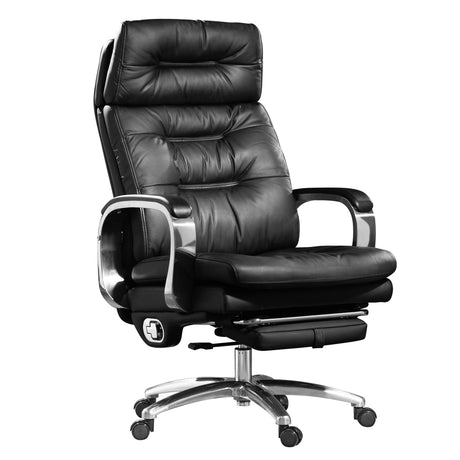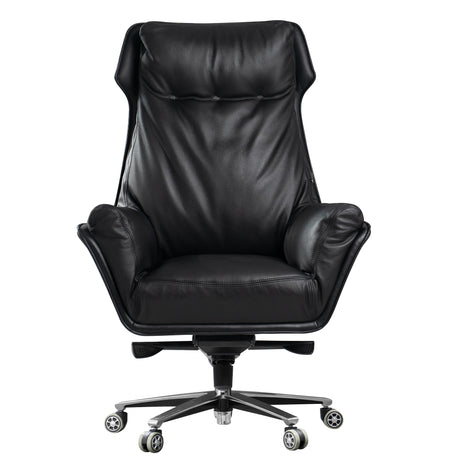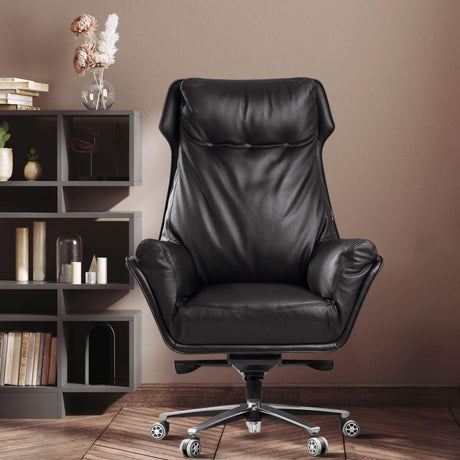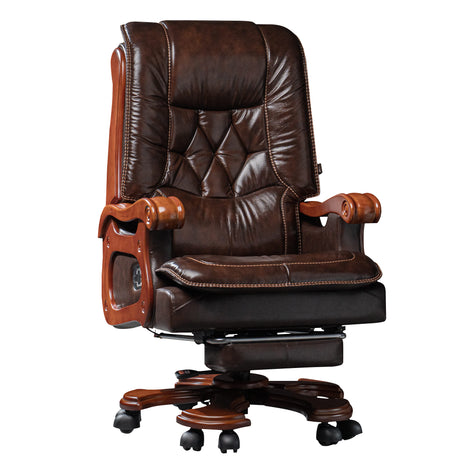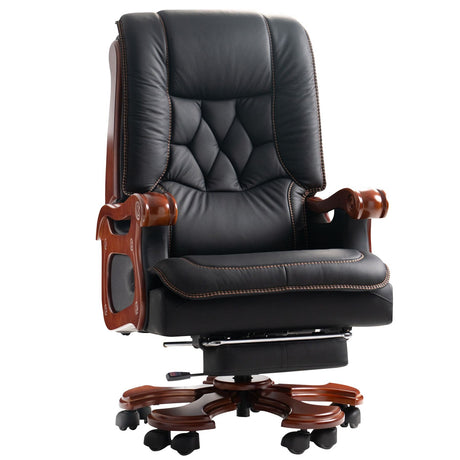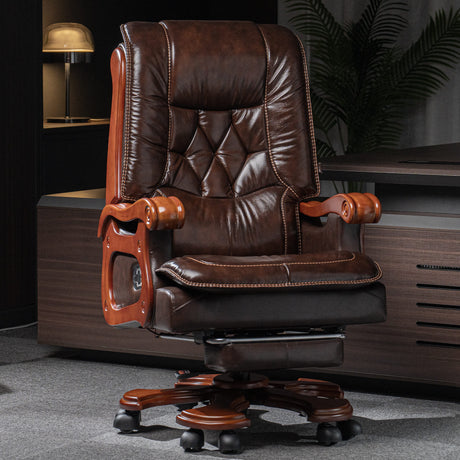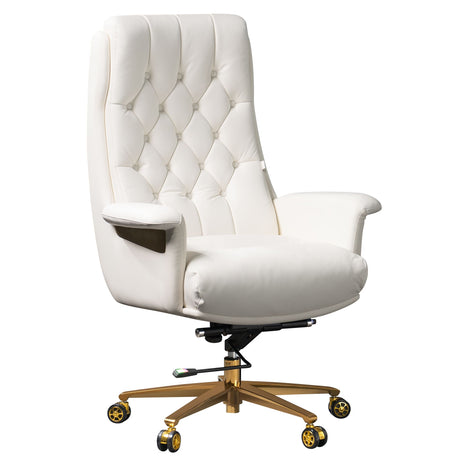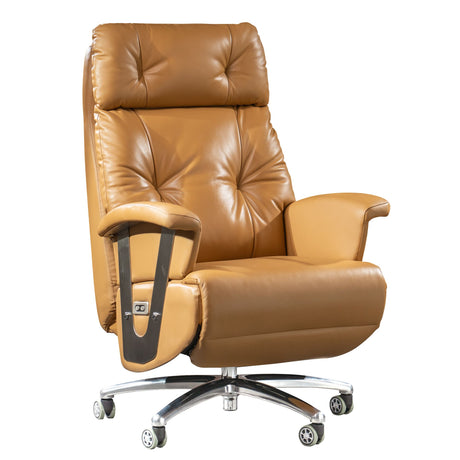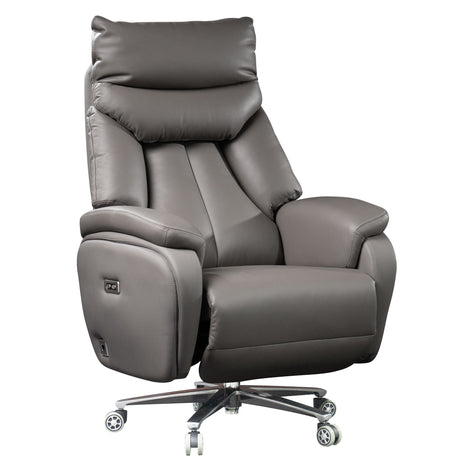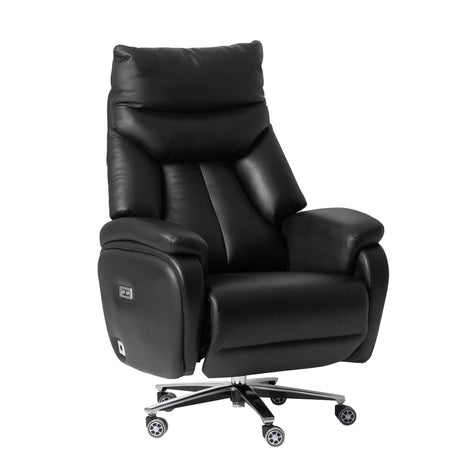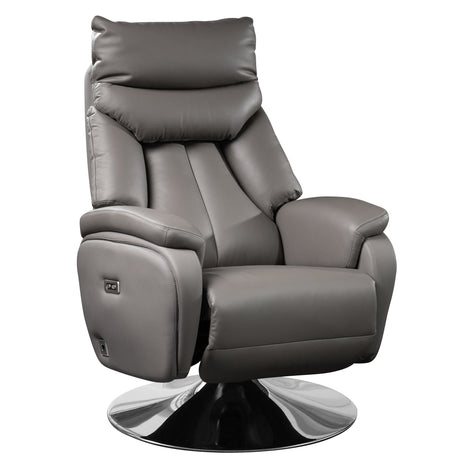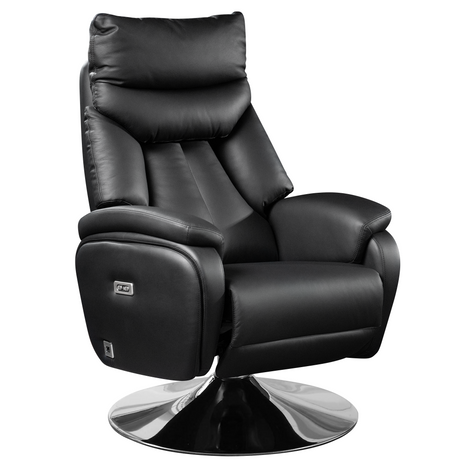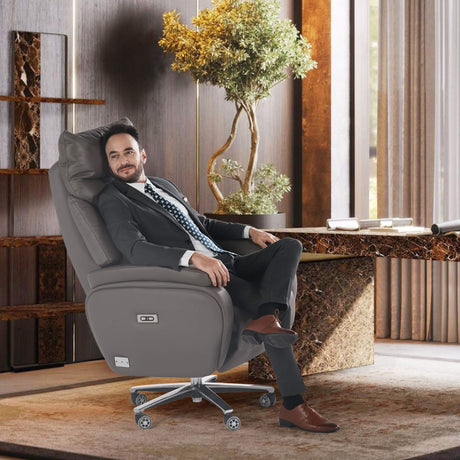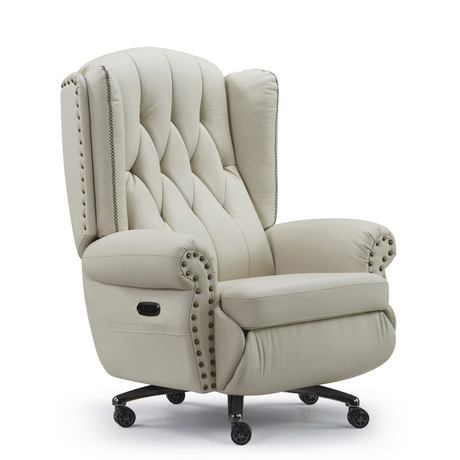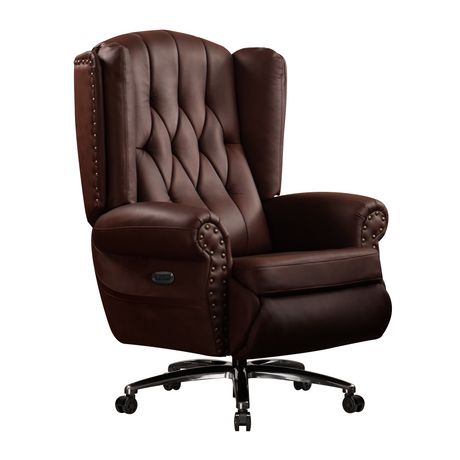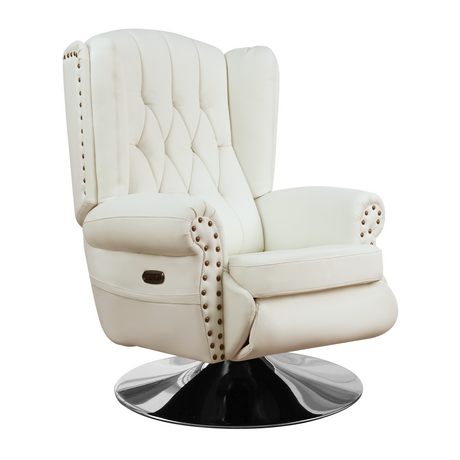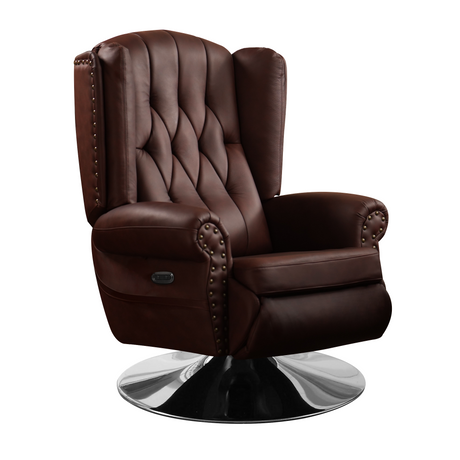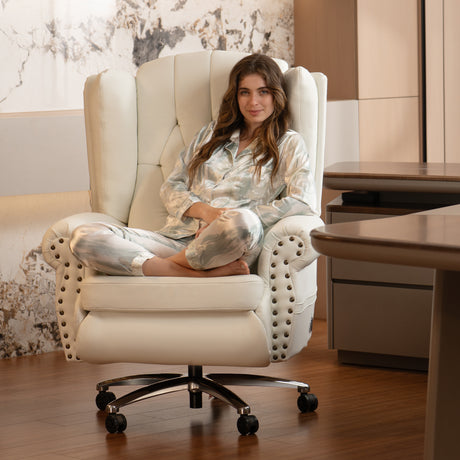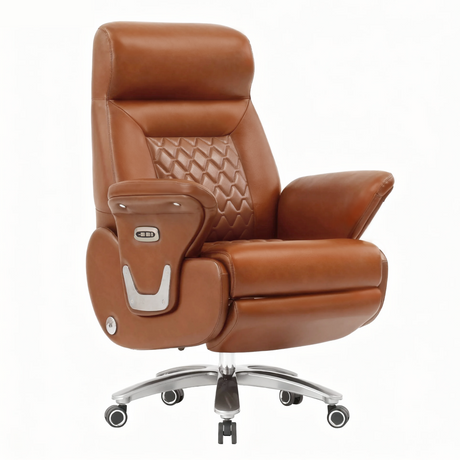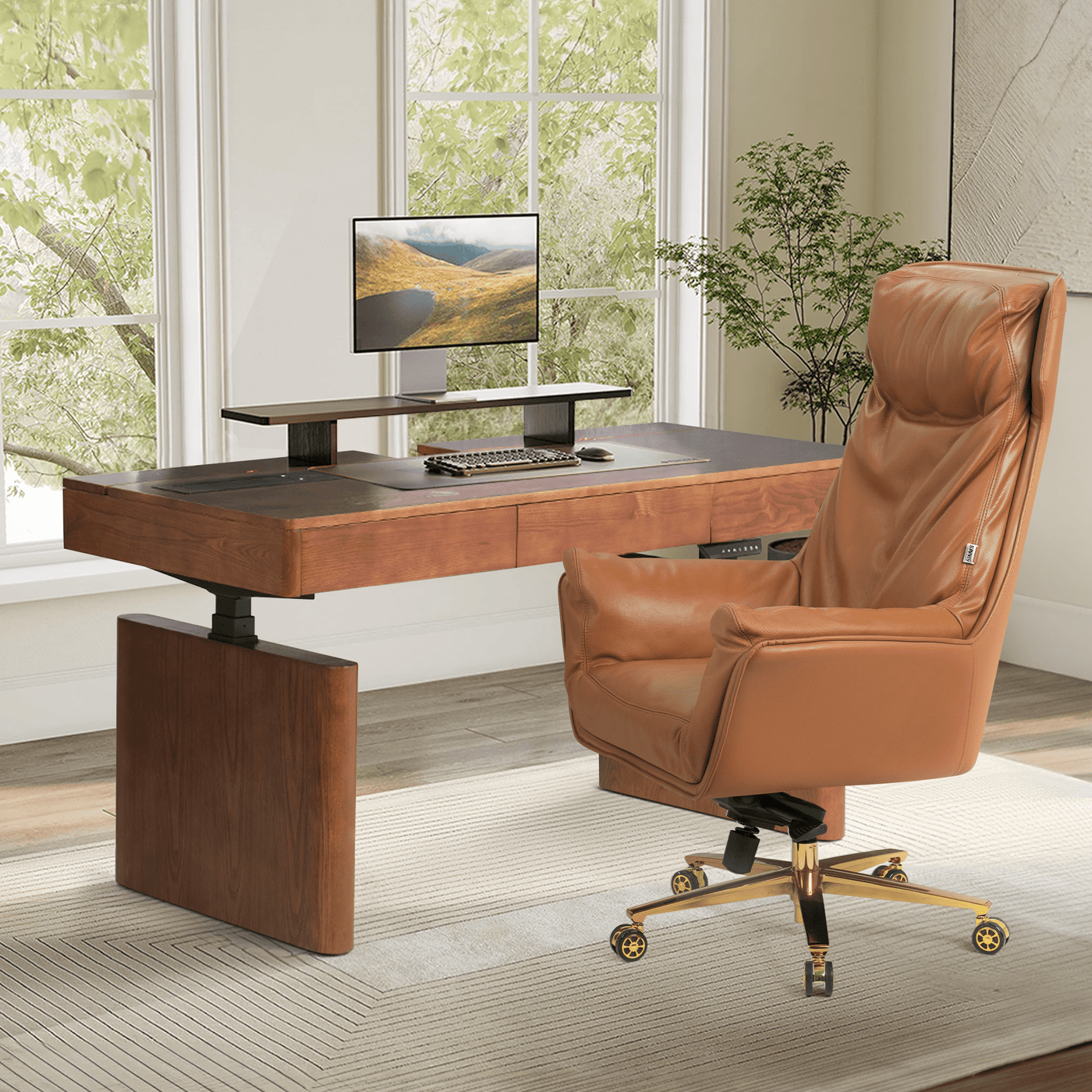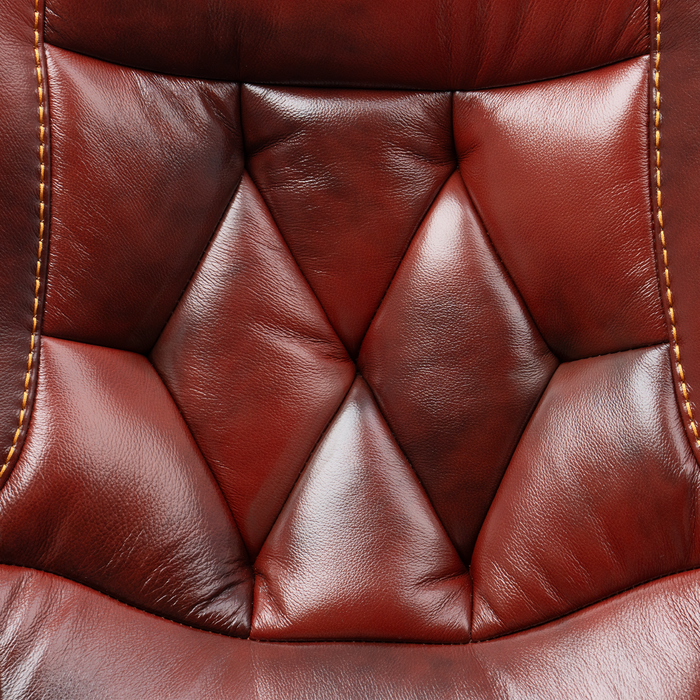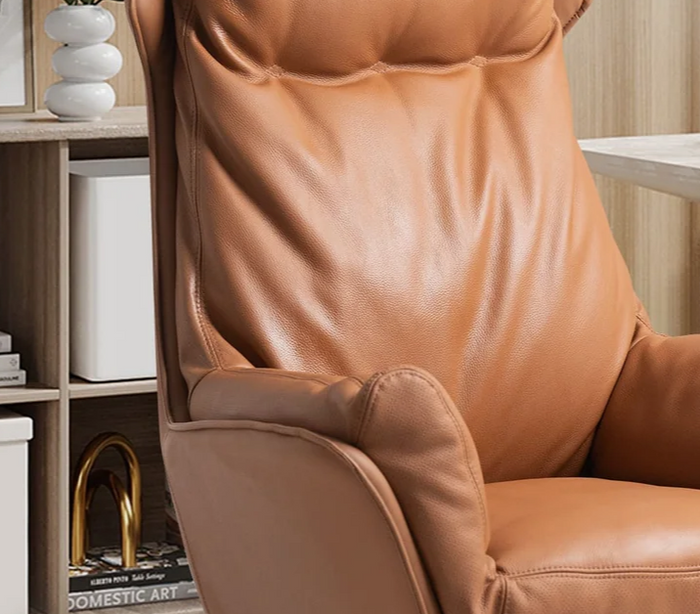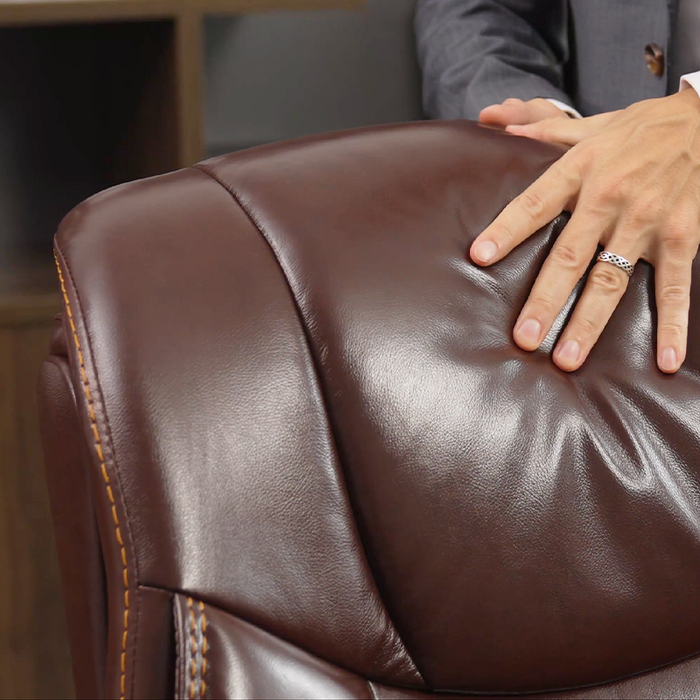Vane Massage Office Chair Upgrade
Sale price $649.00 USD Regular price $999.00Unit priceUnavailable- Sale priceFrom $1,295.00 USD Regular price $1,695.00Unit priceUnavailable
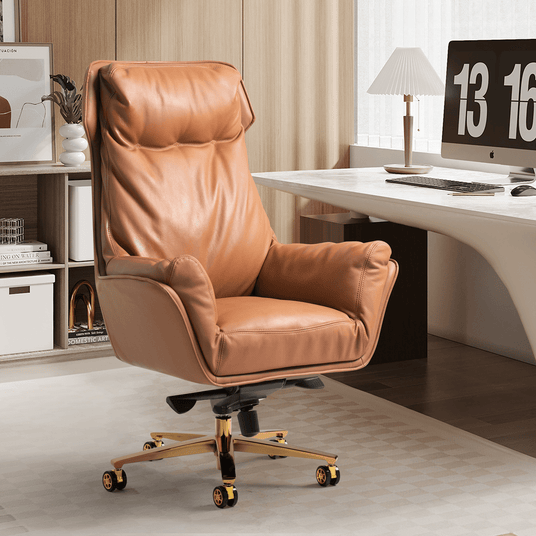
Leather office chair definition and background
A leather office chair is a type of office seating that has the appearance of leather, which can be either genuine leather or synthetic leather (such as PU leather), depending on the model of the chair. Commonly available in black, brown or white, it is highly sought after for its sleek, luxurious look and superior durability.
Leather office chairs date back to the 19th century when they were a symbol of social status and success. Over time, leather chairs have not only become popular in high class offices, but have also grown to be the preferred choice for many home offices and commercial offices.
Why choose leather office chairs:
Aesthetics: Leather office chairs look luxurious and classy, immediately enhancing the visual aesthetics of an office, and are often ideal for executive offices or conference rooms, adding a professional and elegant atmosphere.
DURABILITY: Leather is a very durable material that stands up to the wear and tear of daily use and does not tear or fray easily, a high quality leather office chair can last for many years and will instead look more distinctive over time.
Easy to clean: Leather surfaces do not absorb water and are therefore easy to clean, even if spilled liquids can be quickly wiped clean without leaving stains, making leather chairs a practical choice for office environments.
Comfort: While comfort varies from person to person, many people find leather office chairs to be very comfortable, especially those that are well-padded, and they gradually adapt to the user's body over time to provide a higher level of comfort.
Our office chair leather material
The Importance of Leather Office Chairs
Work Efficiency:
Increased productivity: a comfortable office chair can help increase efficiency and productivity by reducing distractions and discomfort at work.
Customized support: Many leather office chairs offer adjustable lumbar support, tilt tension control, and flexible armrests, features that help users find the most comfortable working position, reduce body pain, and increase productivity.
Breathability: Leather is naturally breathable and can help control body temperature, keeping you cool and dry even during long work days.
Human Health:
Relieve neck and back pain: leather office chairs are often designed to support the lumbar and back, which can reduce pain from long hours of work.
Reduces hip pressure: a well-designed chair reduces the pressure of sitting on the hips, thus reducing the discomfort of sitting for long periods of time.
Improves posture: A good chair promotes proper sitting posture and helps prevent long-term health problems caused by poor posture.
Increase blood circulation: proper support and comfortable cushions can improve blood circulation to the lower extremities, which is beneficial to health.

Leather office chair maintenance:
Why should I maintain my leather office chair regularly?
Prolong service life: regular cleaning and maintenance can prevent the accumulation of dust and stains and reduce the rate of leather aging and wear.
Maintain the appearance: a clean leather office chair can maintain its original luster and color, making the office environment look more professional and neat.
Improve comfort: Keeping the leather supple improves the comfort of sitting in the chair, which is especially important for people who work long hours.
How to care for leather office chairs?
Regular cleaning: Use a mild cleaner designed for leather and avoid cleaners containing harsh chemicals, these may damage the leather.
Wipe with a soft cloth: Use a soft cloth made of microfiber or cotton to gently wipe the surface of the leather to avoid scratching.
Avoid direct sunlight: Place the office chair away from direct sunlight to prevent the leather from fading and cracking.
Treatment of stains: If accidentally stained, the stain should be treated immediately to avoid the stain penetrating into the leather interior and causing hard-to-remove stains.
Regular oiling: Using leather care oil every 3-6 months can keep the leather soft and flexible.


